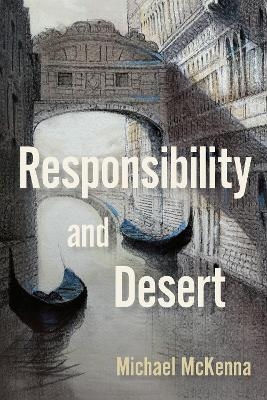
Responsibility and Desert
Seiten
2025
Oxford University Press Inc (Verlag)
978-0-19-767996-8 (ISBN)
Oxford University Press Inc (Verlag)
978-0-19-767996-8 (ISBN)
- Lieferbar (Termin unbekannt)
- Versandkostenfrei innerhalb Deutschlands
- Auch auf Rechnung
- Verfügbarkeit in der Filiale vor Ort prüfen
- Artikel merken
Responsibility & Desert advances a conversational theory of moral responsibility that relies upon desert as the normative basis for blame and punishment. A conversational theory understands the relationship between a blameworthy person and one who blames her to be similar to the relationship between competent speakers engaged in a conversational exchange. Blame can therefore be appraised for being meaningful as a reply to a culpable party's conduct. But meaningfulness alone is inadequate to justify blame and punishment. Might one appeal to fairness, reasonableness, or just utility?
Desert is widely regarded as the proper basis for blame and punishment. But is this a philosophically defensible position? Philosopher Michael McKenna explores just what desert is within the domain of moral responsibility, when conceptualized within the framework of the conversational theory. He does not offer an unqualified defence, but he does offer a best case for treating desert as the proper basis for the communicative character of blame and punishment. To do so, he takes up familiar challenges to desert and retribution. Does deserved blame and punishment commit us to the non-instrumental goodness of harms to the blameworthy and criminally culpable? Is this mere vengeance? Does it also commit us to extremely harsh treatment in response to extremely egregious wrongdoing? McKenna does not shy away from accepting hard truths about appeal to desert, but he does show that many of the most damning indictments of it are misguided.
Desert is widely regarded as the proper basis for blame and punishment. But is this a philosophically defensible position? Philosopher Michael McKenna explores just what desert is within the domain of moral responsibility, when conceptualized within the framework of the conversational theory. He does not offer an unqualified defence, but he does offer a best case for treating desert as the proper basis for the communicative character of blame and punishment. To do so, he takes up familiar challenges to desert and retribution. Does deserved blame and punishment commit us to the non-instrumental goodness of harms to the blameworthy and criminally culpable? Is this mere vengeance? Does it also commit us to extremely harsh treatment in response to extremely egregious wrongdoing? McKenna does not shy away from accepting hard truths about appeal to desert, but he does show that many of the most damning indictments of it are misguided.
Michael McKenna is Professor of Philosophy at University of Arizona, having arrived in 2012. He taught at Ithaca College from 1994-2006, and Florida State University from 2006-2012. He has held visiting appointments at University of Colorado, Boulder, and Bryn Mawr College. McKenna works primarily on the related topics of free will and moral responsibility, but also in ethics, moral psychology, action theory, and metaphysics. His book Conversation & Responsibility (OUP) appeared in 2012, and Free Will: A Contemporary Introduction, coauthored with Derk Pereboom, (Routledge) appeared in 2016.
| Erscheinungsdatum | 19.11.2024 |
|---|---|
| Verlagsort | New York |
| Sprache | englisch |
| Maße | 140 x 210 mm |
| Themenwelt | Geisteswissenschaften ► Philosophie ► Ethik |
| Geisteswissenschaften ► Philosophie ► Metaphysik / Ontologie | |
| ISBN-10 | 0-19-767996-X / 019767996X |
| ISBN-13 | 978-0-19-767996-8 / 9780197679968 |
| Zustand | Neuware |
| Haben Sie eine Frage zum Produkt? |
Mehr entdecken
aus dem Bereich
aus dem Bereich
unsere kollektive Verantwortung
Buch | Hardcover (2023)
wbg Theiss in Wissenschaftliche Buchgesellschaft (WBG) (Verlag)
35,00 €


